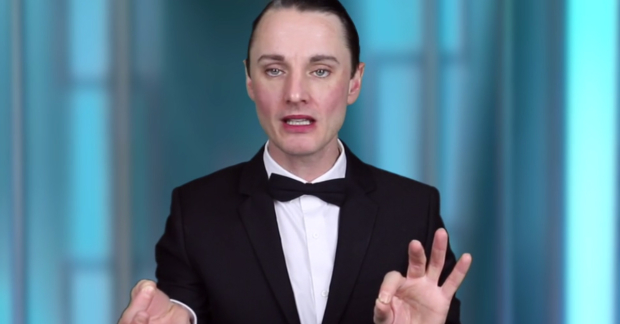Is online performance as engaging as traditional theatre?
From his travels in India, Matt Trueman explore why online performance is so good at keeping our attention in a world of digital noise

Can theatre exist on the internet? When we talk about online performance, it's often more accurate to say it exists through the internet than on it. When we live-stream or watch archive footage online, the site of performance is still the original stage. Technology allows us access from elsewhere.
There have been performances made specifically to sit online: Twitter dramas, Skype plays, one-on-one shows via webcam. Increasingly, though, theatremakers are exploring another online space: the stream.
Each of us has our own window on the web, be it a Facebook feed, an RSS reader or a Twitter stream. These are rolling tickers of virtual flotsam and jetsam, typified by speed and superficiality. Cat videos, hashtag games, breaking news, fake news, Trump memes all jumbled together as they wash past. Most of it is quotidian, flippant and forgettable – digital noise.
Theatre seals itself off from the rest of the world to hold our focus for a while. Can it do the same online?
I've had a week away from that for the first time in I don't know how long, and I can't tell you how much of a difference that's made. My head's calmer and less cluttered; one thought at a time. I'm writing this from the bank of the Yamuna river, across from the Taj Mahal. The sun's on its way down to my right, soaking into that white marble dome. There's a breeze from the left and, behind me somewhere, the call to prayer is floating out over the city. It's as good a place as any to clear some space to think. We all need that. We don't often get it.
I wrote, a while back, that theatre can create it physically: sealing itself off from the rest of the world to hold our focus for a while. Can it, I wonder, do the same online?
A week or so after the Golden Globes and Meryl Streep's vocal criticism of Donald Trump, the performance artist Dickie Beau put out a short video piece. There he was, in his black tie best, transposed into Streep's spot onstage, lipsyncing along to a Peter Sellars speech about the true nature of theatre in ancient Greece. It was, he mouthed, an amplification device – a way of getting lots of people listening in. The camera cuts from Beau in his dickie bow to rapt A-listers – Ryan Gosling, Denzel Washington, Sarah Jessica Parker – hooked on his words. It's unbelievably uncanny, but quietly fascinating too, and subversive.
Soon afterwards, I saw another short in the same stream: Emmet Kirwan's Heartbreak. It's a spoken word piece, a story about a young Irish girl – bright, talented – who falls pregnant and becomes a single mother, but pushes on with her studies regardless. Kirwan's words crescendo, building to a feminist fist raised high.
Both caught and, crucially, held my attention. They bobbed up unexpectedly in my stream and carved open a space in my daily routine. For a few minutes, I stopped and tuned in; all the more focused because I was caught off-guard.
It can catch us unawares and carve open a space to think when we least expect it
Both pieces disrupted my online stream. How? I think through performance – not theatre per se, but theatricality. They make a show of their liveness; the act of performing – Beau lipsyncing, Kirwan with language. Both acknowledge their frame – remixing viral material or through direct address – and both apply an aesthetic that cuts through everything around them.
You know who's really good at this? OK Go. Their music videos do exactly the same thing to lift themselves out of the stream. Where they use spectacle, however, theatremakers might use substance.
The last year has proved how dangerous the stream can be. It favours the soundbite over considered argument, and the eyecatching over the engaging. Performance can challenge that. Take the Almeida's Figures of Speech (a project that's starting soon: actors reciting great political speeches in YouTube videos). It aims to interrupt our online activity with articulacy.
This space might be more effective than theatre itself. It comes to us, where we have to seek theatre out, and so (echo chambers aside) it might reach other audiences and preach beyond the choir. It sits side by side with everyday politics, rubbing against it, jostling with it, throwing down a challenge, instead of sitting siloed off in some cultural sphere. More than anything else, it can catch us unawares and carve open a space to think when we least expect it. That feels more crucial than ever.












